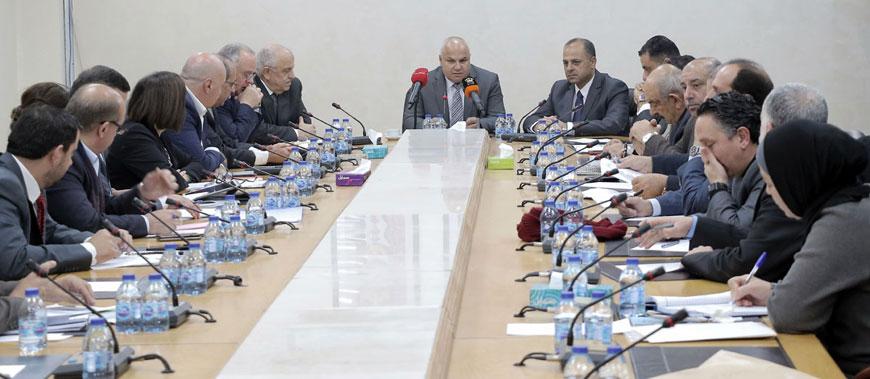You are here
Jordan pledges further correction measures next year in letter to IMF
By Omar Obeidat - Aug 12,2015 - Last updated at Aug 12,2015
AMMAN – The government has told the International Monetary Fund (IMF) it would take a set of fiscal policies related to energy and water tariffs as well as food subsidies in 2016.
The pledges were made in a letter of intent to IMF Managing Director Christine Lagarde signed by Finance Minister Umayya Toukan and Governor of Central Bank of Jordan Ziad Fariz following the completion of the seventh and final review under the Stand-By Arrangement and proposal for Post-Program Monitoring. The letter was published by the fund as part of a 57-page report earlier this month.
The fiscal policies aim at reducing budget deficit to less than 3 per cent of the gross domestic product (GDP) and lowering public debt to about 70 per cent of GDP by 2020, the officials said.
The measures include clearing all unpaid debts owed to the Jordan Petroleum Refinery Company estimated at around JD110 million or 0.5 per cent of GDP in 2016, rationalise non-priority current spending through containing the wage bill and better administration of the general food subsidy.
In the tax administration field, authorities will work on cleaning up the taxpayers’ database and strengthen general sales tax compliance.
In the energy sector, authorities said the priority will be to lower state-owned electricity company, NEPCO, losses to about 1 per cent of GDP in 2016 and reach cost recovery by 2018 at the latest.
The recent start of operations of the liquefied natural gas (LNG) terminal in Aqaba and a new agreement increasing LNG imports to 250 million British thermal units a day, as well as power tariff increases scheduled for early 2016 and 2017 were cited as steps taken to realise this goal.
The government said it also stands ready to re-instate the full tariff increase, which is 15 per cent, should the oil price go above $70 dollars per barrel for a period longer than two months.
Under pressure by the Lower House, the government in May decided to halve the annual electricity tariff increase after the sharp decline in international oil prices.
In the water sector, the government pledged to bring the Water Authority of Jordan to operational cost recovery over the medium term through cost savings from better energy efficiency, lower system losses and higher revenues through improved collection and tariff increases, which, they told IMF, would protect vulnerable households.
The IMF said increases of 10–25 per cent for water fees are scheduled for implementation in August this year.
Related Articles
AMMAN — Jordan on Tuesday signed a letter of intent with the International Monetary Fund (IMF) for a $700 million Extended Fund Facility (EF
AMMAN — Parliamentary committees and the ministerial economic team on Sunday agreed to allow loan payments due to banks to be postponed, wit
AMMAN — Jordan is expected to receive $70 million from the International Monetary Fund (IMF) after the completion of a mission scheduled to

















